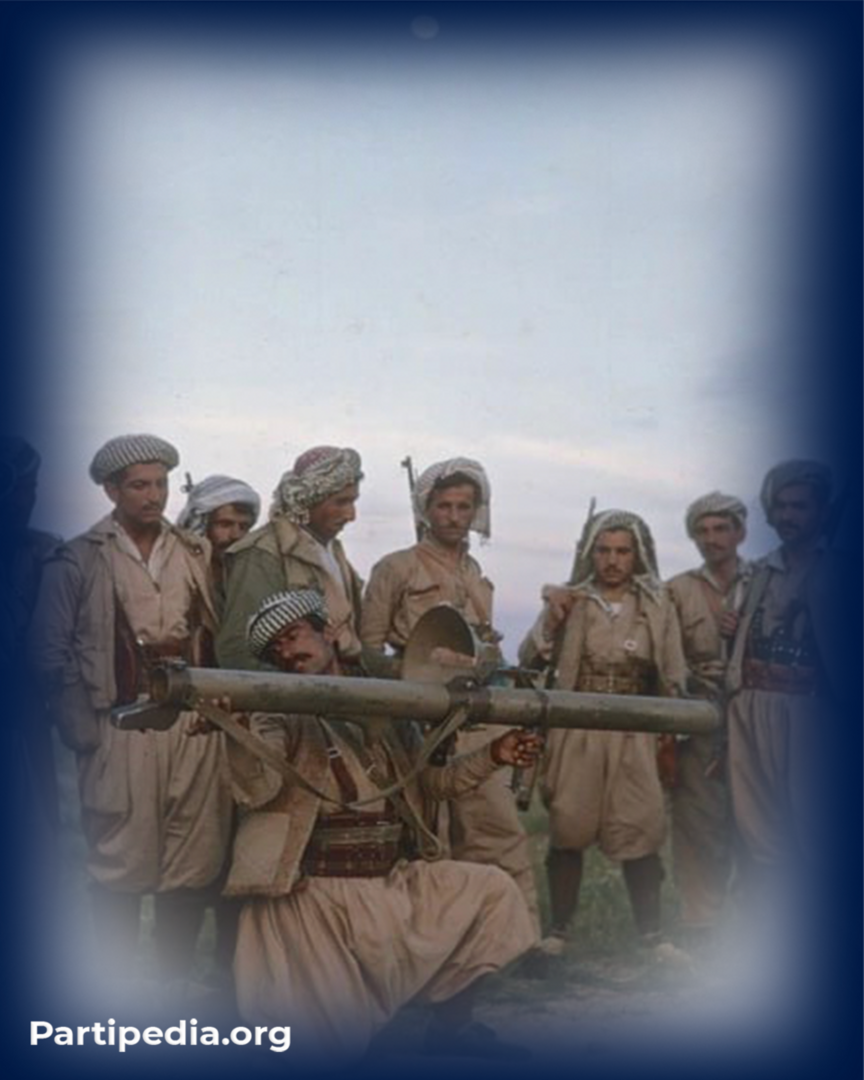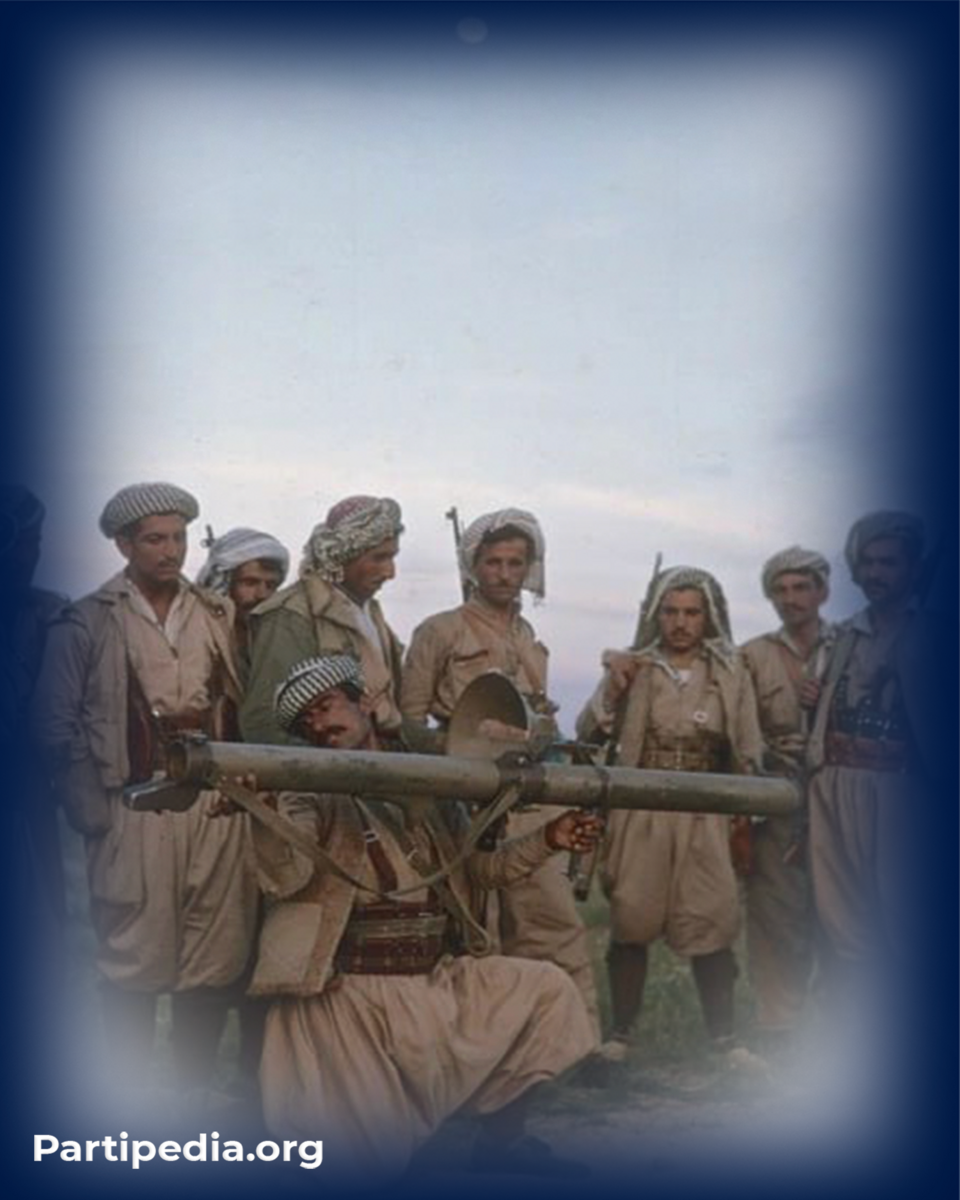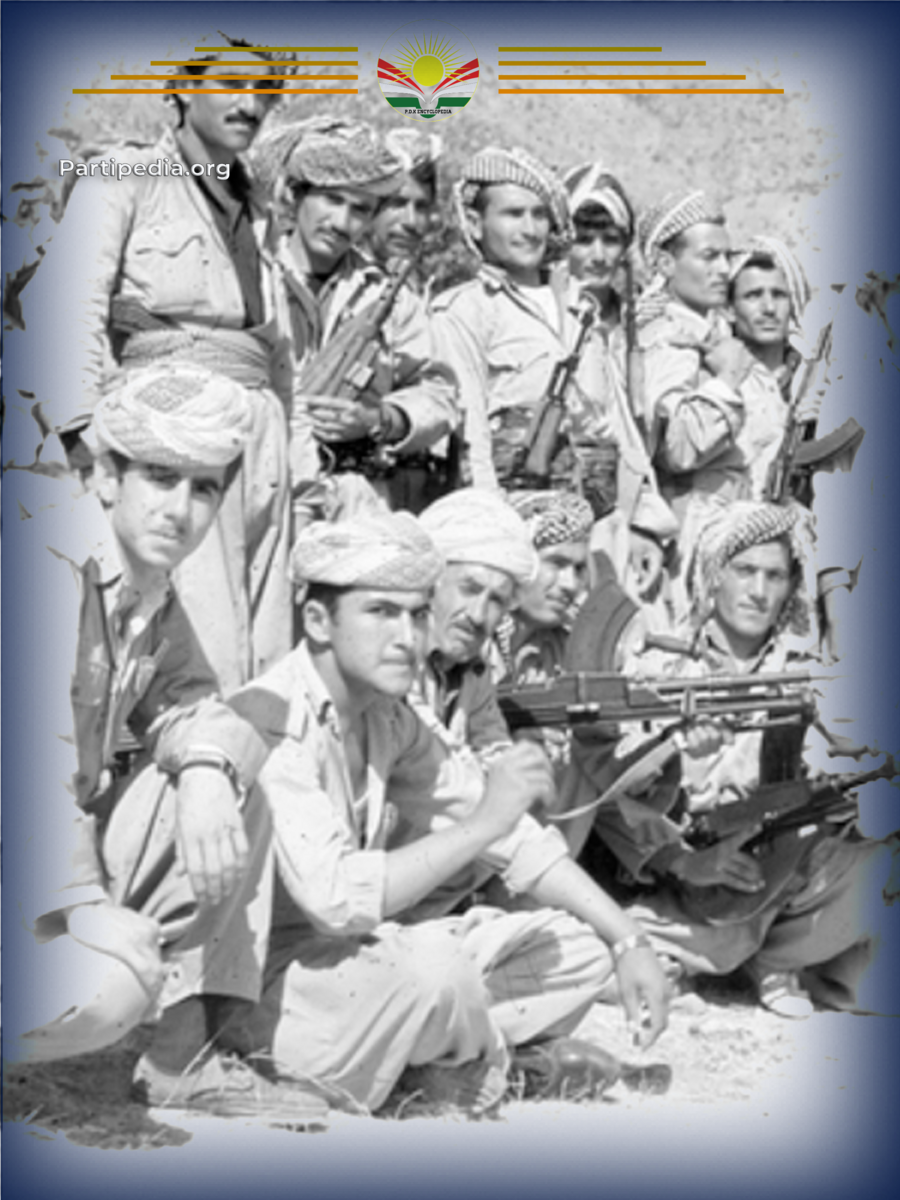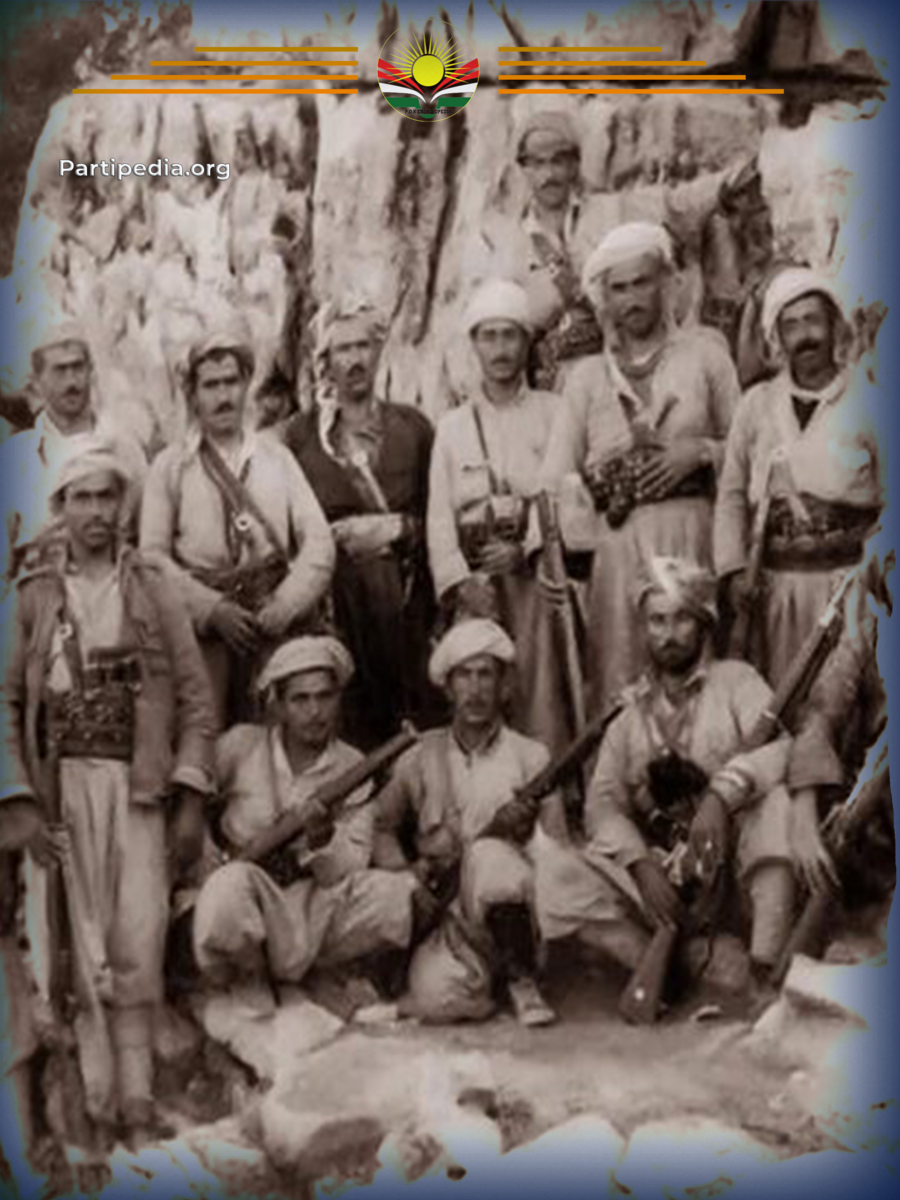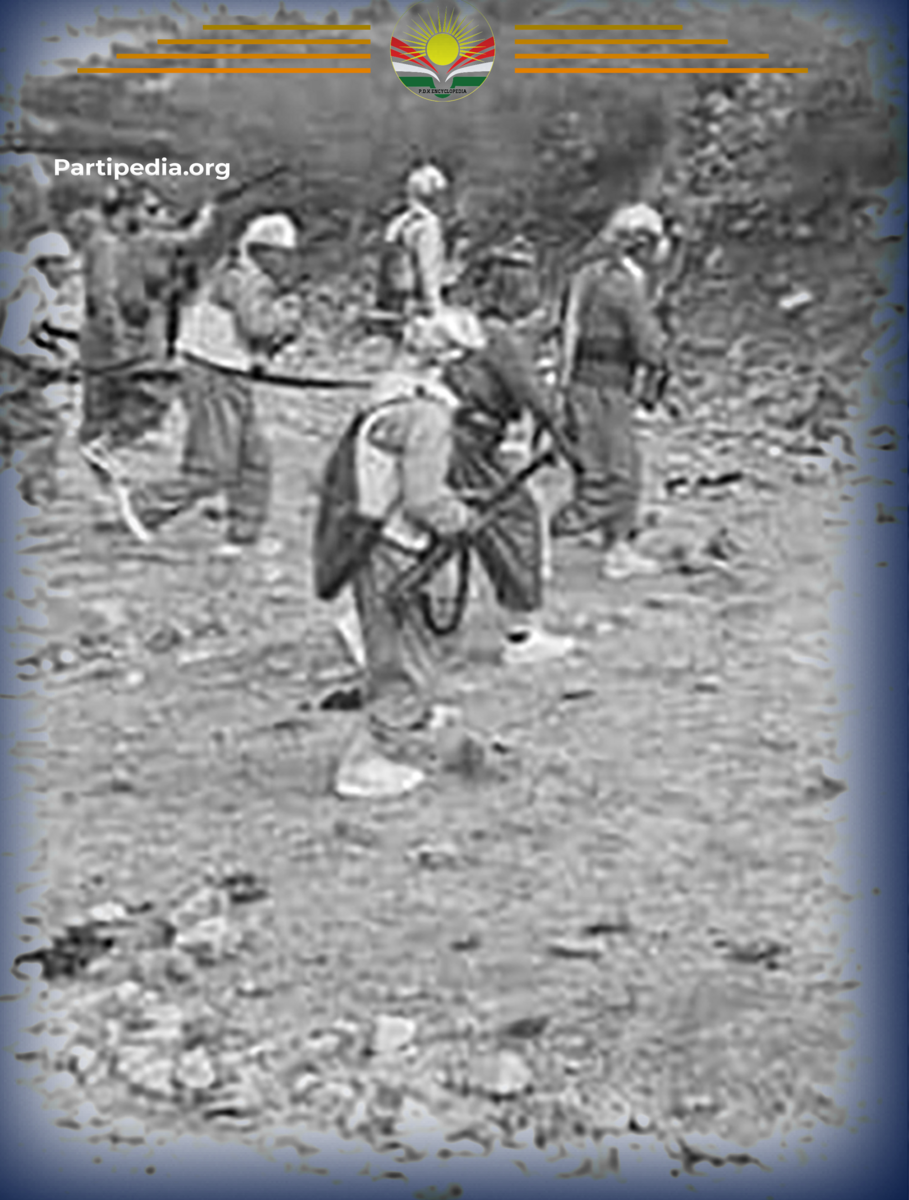In 1968, Iraq experienced a unique political situation characterized by consecutive military coups within a short span of time. The Ba'athists successfully overthrew President Abdul Rahman Arif and Prime Minister Abdul Razzaq Naifi on July 17 and 30, respectively, marking their second rise to power. Throughout this period, there was no direct confrontation between the Peshmerga forces of the revolution and the government forces until the end of 1968. However, clashes persisted between the Peshmerga forces and the fighters affiliated with the old political bureau wing, and these clashes were notably more intense. Furthermore, sporadic skirmishes between the Peshmerga and government forces continued to occur.
During the autumn of 1968 in the Qadir Karami area of the Garmian region, a significant number of combatants, backed by two government battalions, aircraft, artillery, tanks, and armored vehicles, engaged in fighting and assaults against the Peshmerga forces. As the battalion commander and his Peshmergas were en route to Mahmoud Parezad village, they received a warning from a commander to provide assistance to the Peshmergas under Arif Star. This call for help arose due to a massive offensive launched by the government forces and fighters affiliated with the old political bureau wing against the Peshmerga fighters.
Upon reaching the designated location, the Peshmerga support forces discovered that Arif Star's troops were facing a shortage of ammunition and were severely fatigued, resulting in their weakened ability to effectively counter the enemy's assault. In response, the Peshmerga forces swiftly convened and devised a strategic plan for a counterattack. With great determination, they launched an assault on both the government forces and the enemy fighters from multiple directions, rallying behind the resounding anthem of their Kurdish identity, proclaiming, "We are Kurds, we will not falter... We are warriors, we will not yield."
Engaging in a fierce battle that endured for two arduous hours, the Peshmerga forces ultimately emerged victorious, successfully reclaiming all the previously lost territories. Consequently, the Iraqi army and their fighters were compelled to retreat towards Kirkuk, acknowledging the strength and resilience of the Peshmerga forces. The commander of the Karadag force was promptly apprised of the prevailing situation and issued orders to cease pursuing the retreating enemy forces, instructing his troops to halt their advance at that point.
The government and armed forces incurred significant losses following the defeat, which included the capture of numerous weapons and ammunition, along with the destruction of two tanks, an armored vehicle, and two other vehicles. Additionally, the battlefield was littered with the bodies of numerous fighters.
The outcome of the conflict and the triumph of the Peshmerga in the battle were subsequently communicated to Leader Idris Barzani, who oversaw the engagements via telegraphs. In a written correspondence addressed to the Peshmerga troops, he expressed his gratitude by stating, "Your dedication is the foundation of Garmian." Furthermore, he provided guidance on the proper handling of the deceased, emphasizing that despite their betrayal, these individuals were still Kurds and should not be regarded as adversaries. Subsequently, they enlisted the assistance of local villagers to aid in the retrieval and burial of the bodies in accordance with the tenets of Islam.
During the bodies retrieval process, a resident of Zarde village came across the remains of his brother and nephew among the deceased. Despite the tragic discovery, the man appeared to be filled with happiness. The Peshmerga forces commander, taken aback by this reaction, inquired about the reason behind his joy in the face of such loss. The man explained that the betrayal of his brother and nephew had brought shame upon him within the Kurdish community, and now, with their burial, that burden would be lifted. This incident showcased the deep sense of patriotism felt by an ordinary, uneducated villager as he reclaimed the bodies of his relatives who had passed away after being convicted of treason.
It is important to note that from June 29, 1966 until the Ba'athist coup d'état on July 17 and 30, 1968, the former members of the Political Bureau held positions within the government. Additionally, they collaborated with the government to suppress the Aylul Revolution, resulting in the loss of numerous lives. Moreover, the treaty signed on the 29th was disregarded.
On November 10, 1968, the Ba'ath regime launched an assault on the territories controlled by the revolution, utilizing all available military resources and a substantial army. In conjunction with the Iraqi military, the forces aligned with the former political bureau wing, consisting of approximately 4,000 to 5,000 combatants, engaged the Peshmerga in various locations such as the Jafayati Valley, Siwayl, Sharbazher, Sarochk, Halabja, Biara, Tawela, Dukan, Betwen, Pishdar, and Ranya. The Ba'athist authorities granted this group significantly more freedom of action compared to their predecessors, enabling them to play a crucial role in quelling the revolution and dismantling the Kurdish resistance.
Sources:
١- مسعود بارزانی، بارزانی و بزوتنەوەى ڕزگاریخوازی کورد، بەرگی سێیەم، بەشی یەکەم، شۆڕسی ئەیلوول ١٩٦١-١٩٧٥، چاپخانەى وەزارەتى ڕۆشنبیرى، چ: یەکەم، هەولێر، ٢٠٠٤.
٢- ئارى کەریم، چەند لاپەڕەیەکى زیندوو لە شۆڕشى ئەیلوولدا، چاپخانەى خەبات، دهۆک، ١٩٩٩.
٣- کاروان جوهر محمد، ئیدریس بارزانى ١٩٤٤- ١٩٨٧ ژیان و ڕۆلى سیاسیى و سەربازى لە بزوتنەوەى ڕزگاریخوازى کورددا، چاپخانەى هێڤی، هەولێر، ٢٠١٩.
٤- ئیبراهیم جەلال، باشورى کوردستان و شۆڕشى ئەیلوول بنیادنان و هەڵتەکاندن ١٩٦١- ١٩٧٥، چاپی چوارەم، ٢٠٢١.
٥- هاوکار کەریم حەمە شەریف، شۆڕشی ئەیلوول، چاپخانەى زانکۆى سەلاحەدین، چاپى یەکەم، هەولێر، ٢٠١٢.




